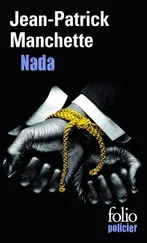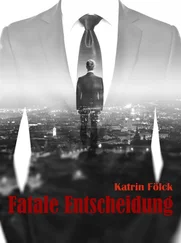Jean-Patrick Manchette - Fatale
Здесь есть возможность читать онлайн «Jean-Patrick Manchette - Fatale» весь текст электронной книги совершенно бесплатно (целиком полную версию без сокращений). В некоторых случаях можно слушать аудио, скачать через торрент в формате fb2 и присутствует краткое содержание. Год выпуска: 2011, ISBN: 2011, Издательство: New York Review Books, Жанр: Криминальный детектив, на английском языке. Описание произведения, (предисловие) а так же отзывы посетителей доступны на портале библиотеки ЛибКат.
- Название:Fatale
- Автор:
- Издательство:New York Review Books
- Жанр:
- Год:2011
- ISBN:978-1-59017-572-9
- Рейтинг книги:5 / 5. Голосов: 1
-
Избранное:Добавить в избранное
- Отзывы:
-
Ваша оценка:
- 100
- 1
- 2
- 3
- 4
- 5
Fatale: краткое содержание, описание и аннотация
Предлагаем к чтению аннотацию, описание, краткое содержание или предисловие (зависит от того, что написал сам автор книги «Fatale»). Если вы не нашли необходимую информацию о книге — напишите в комментариях, мы постараемся отыскать её.
Fatale — читать онлайн бесплатно полную книгу (весь текст) целиком
Ниже представлен текст книги, разбитый по страницам. Система сохранения места последней прочитанной страницы, позволяет с удобством читать онлайн бесплатно книгу «Fatale», без необходимости каждый раз заново искать на чём Вы остановились. Поставьте закладку, и сможете в любой момент перейти на страницу, на которой закончили чтение.
Интервал:
Закладка:
12
Hidden in the copse, Aimée did not have long to wait. After barely a quarter of an hour, she began to see cars going by on the road to the hamlet. The vehicles continued to pass for ten minutes or so, sometimes one or two minutes apart, sometimes closer. There were three cars separated by only fifty or sixty meters, apparently traveling in a group. Altogether, Aimée counted more than ten vehicles. Standing in the sheltered half darkness of the clump of trees, invisible amid the prickly branches, she recognized most of the drivers, among them the bookseller Rougneux at the wheel of a Renault 6, the pharmacist Tobie in a Citroën GS, Lorque with his brownish eyelids driving a large tobacco-colored Mercedes. A chauffeur in street clothes and a cap was at the wheel of another Mercedes with the skinny, laconic Lenverguez in the back. Dr. Sinistrat, attorney and realtor Lindquist, and senior manager Moutet in his Alfa Romeo also passed. Two or three other vehicles were driven by people unknown to Aimée, among them a Citroën 1200 Kg van with a sign on the side reading GÉRAUD AND SONS-BUILDERS-ENGINEERS-PUBLIC WORKS. The journalist DiBona brought up the rear at five past six, flying along on a mud-streaked Polish WSK motorcycle in a leather coat and an English crash helmet with a visor.
Then the landscape was empty once more as far as the eye could see. Standing still in the obscurity of the copse, Aimée smoked two cigarettes. She felt rather cold. She crouched by her bike, unscrewed the valve of the rear wheel, and pressed down. The tire deflated. Once it was flat, Aimée stood up again.
Once more the cars began to pass by, returning from the hamlet now and heading towards Bléville. They were traveling fast, the pitch of their engines changing as drivers shifted into a higher gear and left the houses behind. The roaring motors seemed to express anger and fear. Aimée let them all pass by without showing herself, all save Lorque’s tobacco-colored Mercedes, which she watched out for, and which made its appearance a little after the others, bringing up the rear. When she saw it emerge from the hamlet, going at a reasonable speed, she came out of the trees and went back onto the road. Holding her bicycle by the handlebars, she positioned herself in the middle of the roadway. With one hand she signaled the car to stop.
“I have a flat,” she said to Lorque, pointing to the deflated tire. “Could you take me back to town?”
Lorque helped her put the Raleigh in the roomy trunk of the Mercedes. He got back behind the wheel and Aimée sat beside him in the passenger seat. The man’s lips were tight, his glance distracted. He started the car fairly gently, then accelerated.
“Don’t go too fast,” said Aimée. “I am not what I seem to be. I have a proposal for you, one that will surprise you. Between now and when we get to Bléville, you have to hear me out, and you have to answer me yes or no.”
A few moments later, Lorque parked the Mercedes behind the fish market on a dirty deserted street because he and Aimée had not finished their discussion. Night had come. Cats ran among piles of empty shells. Inside the car, Lorque and Aimée talked and sat in silence by turns. At one point Lorque covered his face with both hands and it seemed as if Aimée had spoken sharply to him. At another moment he burst out laughing, but his laughter appeared to be bitter.
“You might be in cahoots with the baron,” said Lorque at one juncture.
“That’s a risk you must take.”
“It is indeed a risk.”
“My friends are also taking a risk,” said Aimée.
“Do I know these friends of yours? Have I ever met them?”
Aimée shook her head. “You have never seen them. And you never will.”
“I have to think this over for a few hours,” said Lorque. “I’ll telephone you tonight.”
“On the phone,” said Aimée, “just say yes or no. Three hours after your call, I’ll meet you here. The problem will have been taken care of. I’ll give you the documents that concern you. You will have deposited the forty thousand francs in the self-service locker. You will give me the key to the locker.”
“It would be simpler if-”
“No discussion,” ordered Aimée.
“It’s a large sum,” said Lorque. Aimée made no reply. She stared straight ahead through the windshield. Lorque shrugged. “Very well,” he said, turning towards the young woman. “But I’ll need some proof that the problem really has been taken care of. How am I to know-”
“A Polaroid print,” said Aimée. “Would that do?”
“That will do.”
Aimée consulted her watch. Seven ten. The guns and ammo stores would be closing soon. She turned a placid face to Lorque.
“Fine,” she said, to end the conversation.
“I am flabbergasted,” said Lorque, smiling almost despite himself. “I can’t believe my ears, honestly. I had found you strange, but this…no. I’m still not quite sure it’s real. I’m going to need an hour or two to decide whether it’s real or not.”
“It’s real,” said Aimée. “My proposal is real. Everything is perfectly real.”
Lorque grabbed Aimée’s wrist and looked intensely into her eyes. He was half sneering, despite himself. With his other hand he clasped the nape of her neck, pulling the young woman towards him and giving her a breathless kiss. She let herself be kissed. His mouth was warm. Then she pulled away.
“That’s enough,” she said.
“You excite me,” said Lorque. “Are you going to disappear afterwards? Yes, of course you are. You should-” He broke off. “I could-” He broke off a second time, gesturing vaguely.
“No, out of the question,” said Aimée as she opened the car door.
Lorque did not help her get the bicycle out of the trunk. As soon as she closed it, he started the engine and put his lights on. The Mercedes drew away silently and disappeared. Aimée got her pump and reinflated the rear tire. At about seven thirty she visited a hunting and fishing store in the center of Bléville. There she bought a supply of 12-gauge large-shot ammunition.
Thereafter, Aimée made calls on people in various parts of town and negotiated with them until late that night. As a rule, the young woman had found that she was obliged in the first instance to make her proposition to interlocutors in a guarded way, or else in a way that made it seem like a joke. But this time, in contrast with the way things had sometimes been in the past, in other towns, Aimée had an obvious way to broach her subject.
“I know,” she told nearly all those she parlayed with, “that the baron possesses documents that you would like to retrieve. I have friends who are ready to retrieve them for you. No, don’t interrupt, just listen.”
The rest followed, more or less quickly, more or less easily.
“My dear Madame Joubert, you astound me!” exclaimed Lindquist, but then she spoke to him brutally, using malicious, coarse language that shattered the man’s façade of respectability and left him speechless; and he offered little resistance when she made her proposition.
Aimée got back to the Seagull Apartments around eleven o’clock. She disturbed the manageress, who was watching television, and announced that she would be leaving Bléville that very night. The manageress hemmed and hawed a little, but since Aimée was paid up through the end of the week, there was not much she could say. The young woman went on up to her studio apartment and packed her bags. The telephone rang. She answered. Lorque was on the line.
“I still can’t believe it,” he said.
“Is it yes or no?” demanded Aimée.
“It’s yes. What do I have to lose?”
“Fine,” said Aimée.
She ended the conversation by depressing the cradle switch with her thumb, and without replacing the receiver called the telephone standard in front of the train station with its enamel plaque reading KEEP YOUR TOWN CLEAN! In response to Aimée’s call a taxi appeared in front of the apartment around twelve fifteen. The young woman was already waiting in the lobby with her luggage. She had herself driven to the station. There she put her bags in the self-service lockers. She kept only her handbag, which among other things held a small Polaroid camera, doubles of every key to the lockers, and six 12-gauge shotgun cartridges. There was a 4:35 a.m. boat train that picked up connecting passengers arriving by sea, and she booked a ticket to Paris on it. Then she went back out of the station, took another taxi, and returned to the Seagull Apartments. Wheeling out her bicycle, she slung her bag over her shoulder and pedaled energetically to the baron’s.
Читать дальшеИнтервал:
Закладка:
Похожие книги на «Fatale»
Представляем Вашему вниманию похожие книги на «Fatale» списком для выбора. Мы отобрали схожую по названию и смыслу литературу в надежде предоставить читателям больше вариантов отыскать новые, интересные, ещё непрочитанные произведения.
Обсуждение, отзывы о книге «Fatale» и просто собственные мнения читателей. Оставьте ваши комментарии, напишите, что Вы думаете о произведении, его смысле или главных героях. Укажите что конкретно понравилось, а что нет, и почему Вы так считаете.












